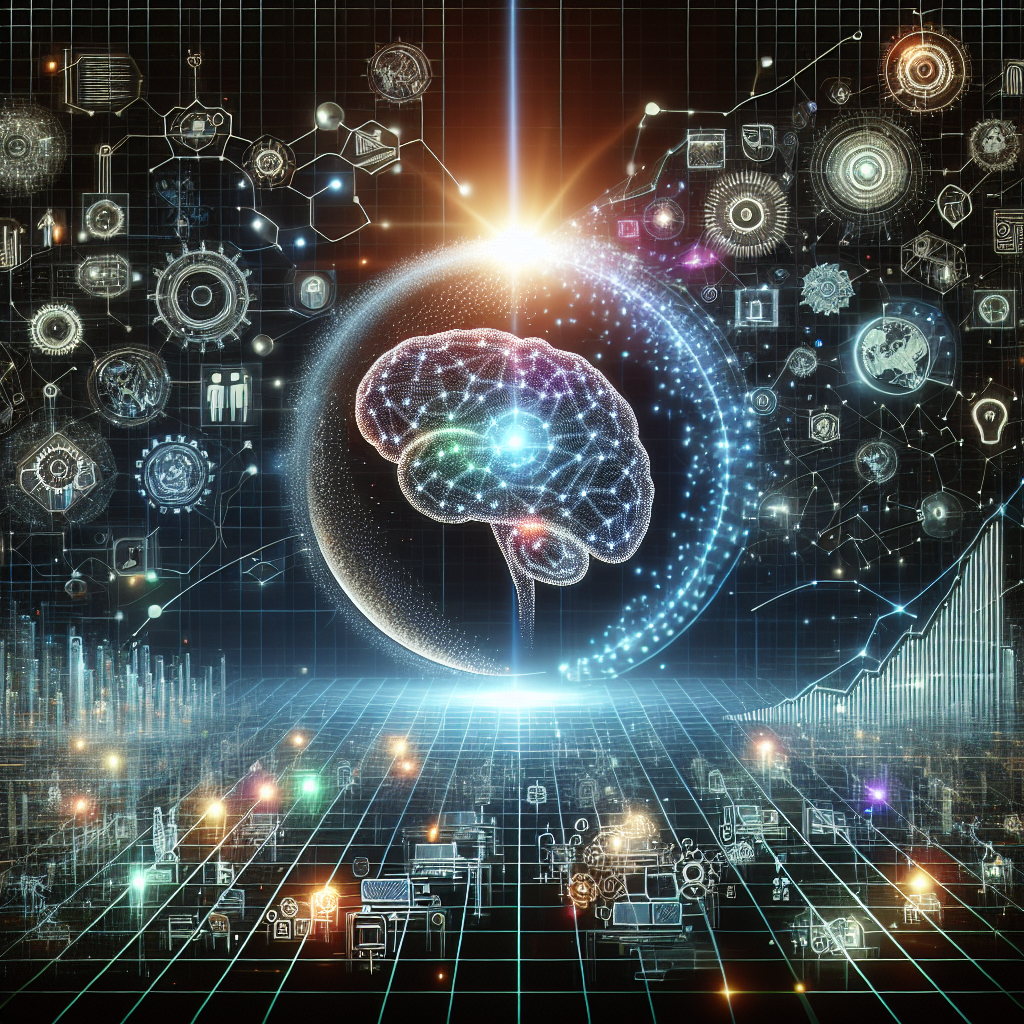Artificial General Intelligence (AGI) is a term used to describe a type of artificial intelligence that can understand, learn, and apply knowledge in any domain. While current AI systems are limited to specific tasks or areas of expertise, AGI is envisioned to have the ability to perform any intellectual task that a human can do. The development of AGI has the potential to revolutionize various aspects of society, including the future of work.
As AGI continues to advance, there is a growing concern about how it will impact jobs and the workforce. Some experts predict that AGI could lead to massive disruptions in the labor market, with many jobs being automated or eliminated altogether. Others argue that AGI will create new opportunities and industries, leading to a more efficient and productive workforce.
In this article, we will explore the potential impact of AGI on the future of work, including how it could affect different industries, the skills needed to thrive in a world with AGI, and the ethical considerations surrounding the use of AGI in the workplace.
How AGI Could Impact Jobs
One of the main concerns surrounding AGI is its potential to automate or eliminate jobs that are currently performed by humans. With its ability to learn and adapt to new tasks, AGI could potentially outperform humans in a wide range of fields, from manual labor to creative endeavors.
Some experts predict that AGI could lead to the automation of up to 50% of current jobs within the next few decades. This could have a significant impact on industries such as manufacturing, transportation, and retail, where many jobs are repetitive or routine in nature. Jobs that involve data analysis, pattern recognition, and decision-making could also be at risk of being automated by AGI.
On the other hand, AGI could also create new job opportunities in fields such as data science, machine learning, and robotics. As AGI becomes more advanced, it could lead to the development of new technologies and industries that we can’t even imagine today. This could create a demand for new skills and expertise, leading to a more dynamic and diverse workforce.
Skills Needed to Thrive in a World with AGI
In order to thrive in a world with AGI, workers will need to develop a new set of skills and competencies. While some jobs may be automated, there will still be a demand for human workers who can complement and collaborate with AGI systems.
One key skill that will be in high demand is adaptability. As AGI continues to evolve, workers will need to be able to learn new skills and adapt to new technologies quickly. This will require a mindset of continuous learning and growth, as well as the ability to work effectively in a rapidly changing environment.
Another important skill is creativity. While AGI systems can perform many tasks better and faster than humans, they still lack the ability to think creatively and come up with innovative solutions to complex problems. Workers who can think outside the box and generate new ideas will be in high demand in a world with AGI.
Ethical Considerations
As AGI becomes more prevalent in the workplace, there are a number of ethical considerations that need to be taken into account. One of the main concerns is the potential for bias and discrimination in AGI systems. If not properly designed and implemented, AGI systems could perpetuate existing biases and inequalities in the workforce.
Another ethical consideration is the impact of AGI on job security and income inequality. If AGI leads to the automation of a large number of jobs, there is a risk that many workers will be left without employment or income. This could exacerbate existing inequalities and lead to social unrest and instability.
FAQs
Q: Will AGI replace all human jobs?
A: While AGI has the potential to automate many jobs, it is unlikely to replace all human jobs. There will still be a need for human workers who can complement and collaborate with AGI systems.
Q: What industries are most at risk of automation by AGI?
A: Industries that involve repetitive or routine tasks, such as manufacturing, transportation, and retail, are most at risk of automation by AGI. Jobs that involve data analysis, pattern recognition, and decision-making could also be automated.
Q: How can workers prepare for the impact of AGI on the future of work?
A: Workers can prepare for the impact of AGI by developing new skills and competencies, such as adaptability, creativity, and critical thinking. They can also stay informed about the latest developments in AI and technology, and be proactive in seeking out new opportunities and industries.
In conclusion, the development of AGI has the potential to revolutionize the future of work in ways we can’t even imagine today. While there are concerns about the potential impact of AGI on jobs and the workforce, there are also opportunities for new industries and job opportunities to emerge. By developing new skills and competencies, workers can prepare for a future with AGI and thrive in a rapidly changing environment.

